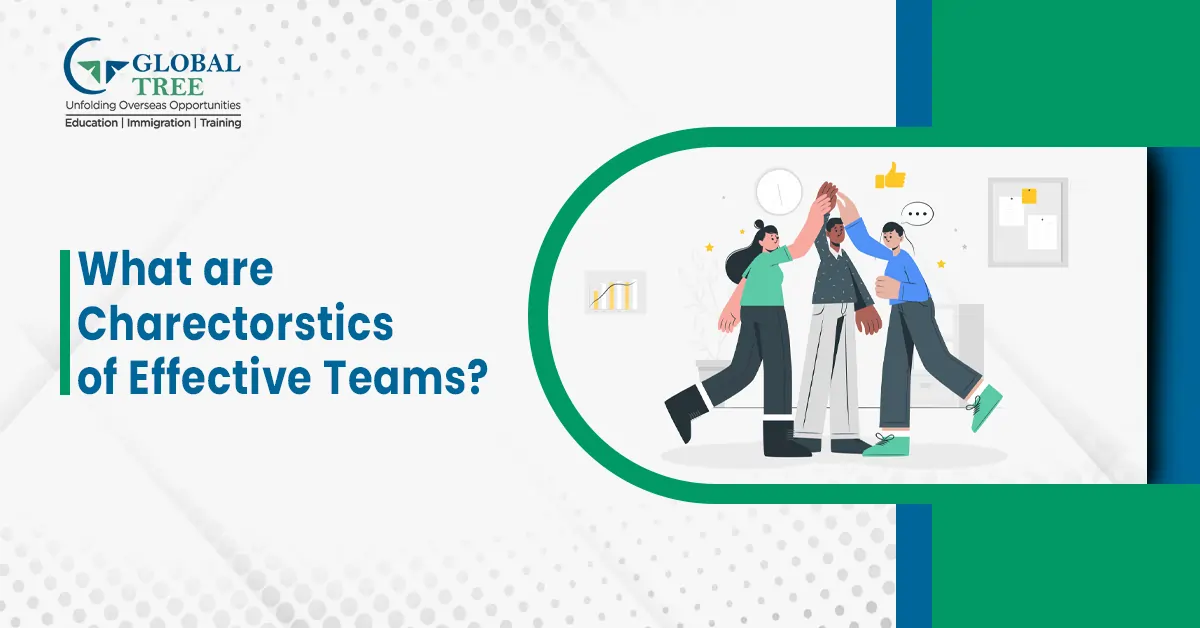What are characteristics of Effective Teams?

- Effective teams are the cornerstone of successful organisations
- 1. Clear Goals and Objectives
- 2. Open and Honest Communication
- 3. Strong Leadership
- 4. Mutual Respect and Trust
- 5. Diverse Skill Sets
- 6. Commitment to Common Goals
- 7. Accountability
- 8. Flexibility and Adaptability
- 9. Effective Conflict Resolution
- 10. Regular Performance Reviews
- Conclusion
Effective teams are the cornerstone of successful organisations
Whether in business, sports, or any other domain, the ability of a group to work together cohesively and efficiently can significantly impact outcomes. Here are some key characteristics that define effective teams:
1. Clear Goals and Objectives
Purpose and Direction
Defined Goals: Effective teams have clear, well-defined goals that are understood and accepted by all members.
Alignment: Each team member's personal objectives align with the team's overall goals, ensuring effective teamwork
Make a list of: Long-term and short-term goals for structured growth
2. Open and Honest Communication
Transparency and Trust
Open Channels: Members communicate openly and transparently, sharing information freely.
Active Listening: Effective teams practice active listening, where members listen to understand, not just to respond.
3. Strong Leadership
Guidance and Support
Decisive Leaders: Good team leaders provide clear direction and make decisive decisions when necessary.
Supportive Environment: Leaders foster a supportive environment where team members feel valued and empowered.
4. Mutual Respect and Trust
Cohesion and Collaboration
Respect: Team members respect each other's skills, experiences, and perspectives.
Trust: There is a high level of trust among team members, which encourages collaboration and risk-taking.
5. Diverse Skill Sets
Complementary Abilities
Skill Diversity: Effective teams comprise individuals with complementary skills and strengths, allowing the team to tackle various tasks effectively.
Role Clarity: Each member understands their role and responsibilities, ensuring efficient task distribution.
(Read More: How to develop Learning Skills for students?)
6. Commitment to Common Goals
Dedication and Persistence
Shared Vision: All team members are committed to the team's vision and objectives.
Persistence: Effective teams display persistence and resilience, overcoming obstacles together.
7. Accountability
Responsibility and Ownership
Individual Accountability: Members take responsibility for their tasks and deliverables.
Collective Accountability: The team as a whole holds itself accountable for achieving its goals.
8. Flexibility and Adaptability
Innovation and Problem-Solving
Adaptability: Effective teams are flexible and adapt to changing circumstances and new information.
Innovative Thinking: They encourage creative thinking skills and are willing to experiment with new approaches.
9. Effective Conflict Resolution
Constructive Disagreements
Healthy Conflict: Effective teams view conflict as a natural part of collaboration and use it constructively.
Resolution Strategies: They employ strategies to resolve conflicts quickly and amicably, maintaining team harmony.
10. Regular Performance Reviews
Continuous Improvement
Feedback Mechanisms: Effective teams regularly review their performance and provide constructive feedback to each other.
(Suggested Read: Is it important to set a Personal Goal? If yes, Why?)
Continuous Improvement: They strive for continuous improvement by learning from successes and failures.
Conclusion
Effective teams are characterized by clear goals, open communication, strong leadership, mutual respect, diverse skill sets, commitment, accountability, flexibility, effective conflict resolution, and regular performance reviews. By fostering these characteristics, organizations can build teams that are not only productive and efficient but also innovative and resilient, capable of achieving outstanding results in any field.


